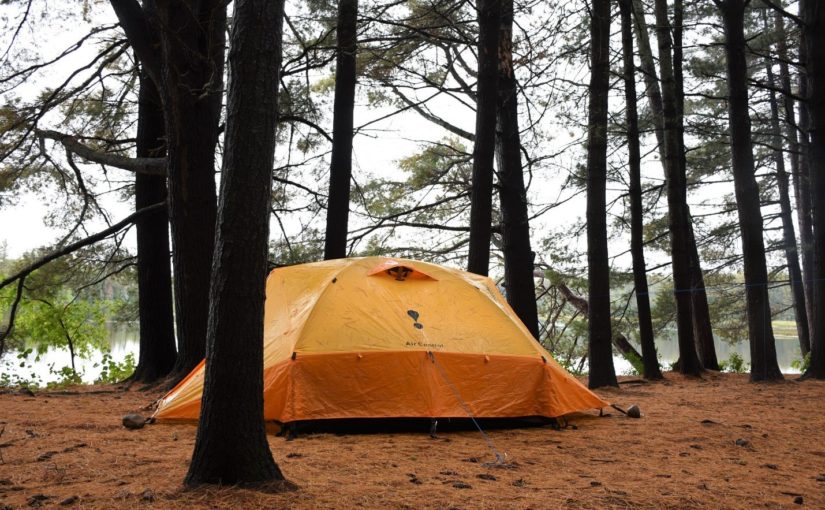Today’s post comes from Jessie Robinson, a Discovery staff member at Samuel de Champlain Provincial Park.
As we become a more environmentally conscious generation, we are paying more attention to how our own lifestyle habits may be affecting the environment.
We strive to reduce our waste, use our reusable and recycle our recyclables, but when it comes to vacation time, we may slip up on our eco-friendly habits. It’s easy to put these values on the back burner during a camping trip where you want everything to be as easy as possible so you can maximize your enjoyment outdoors.
So here are ten simple solutions on how to keep it green in Ontario Parks while still having fun in nature!
Low-waste camping gear
1. Bring along your reusable water bottles
Most Ontario Parks have potable water taps throughout the car camping campgrounds.

If they don’t, you can either bring a large jug of water to refill your bottles, or be more like backcountry campers and invest in a water filter or drinking water tablets.
2. Keep the single-use batteries at home
Get yourself a rechargeable flashlight. These come in many forms, like hand-crank lights or solar-powered lanterns, and can be left out during the daytime to charge.
3. Buy in bulk
Essential camping products like sunscreen and bug spray are tricky when it comes to avoiding waste. There are, however, options out there for products made with recyclable materials and even zero-waste products found online.
Do some online searches, but the easiest tip here is to go BIG. Buying these products in large (preferably recyclable) bottles will decrease the amount of waste material headed for landfills.
4. Quality over quantity
At Ontario Parks, we see a ton of camping chairs, tents, cookware and all sorts of other camping gear end up in dumpsters.
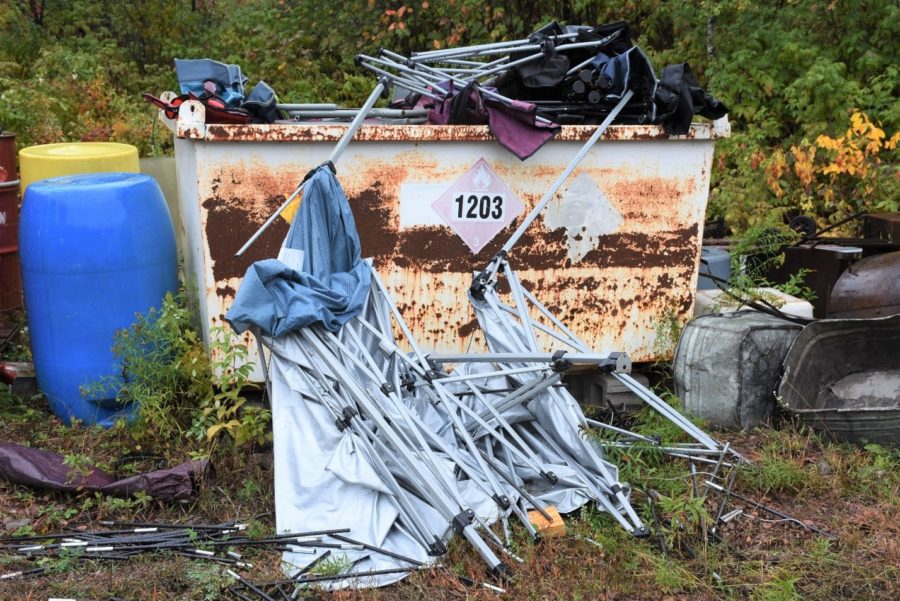
To avoid throwing away what you’ve spent hard-earned money on, invest in quality items that will last.
5. Buy second-hand, rent or borrow
Some other great options for acquiring any camping equipment is to buy secondhand, borrow from a friend, or rent from an outdoor outfitter
Low-waste dining
6. Meal prep is key!
When it comes to packing food for your trip, the more prepared you are, the better. Prepping your food ahead of time into reusable containers will not only save you on single-use plastic wrap, but it will also save you time, so you can spend it enjoying the outdoors.
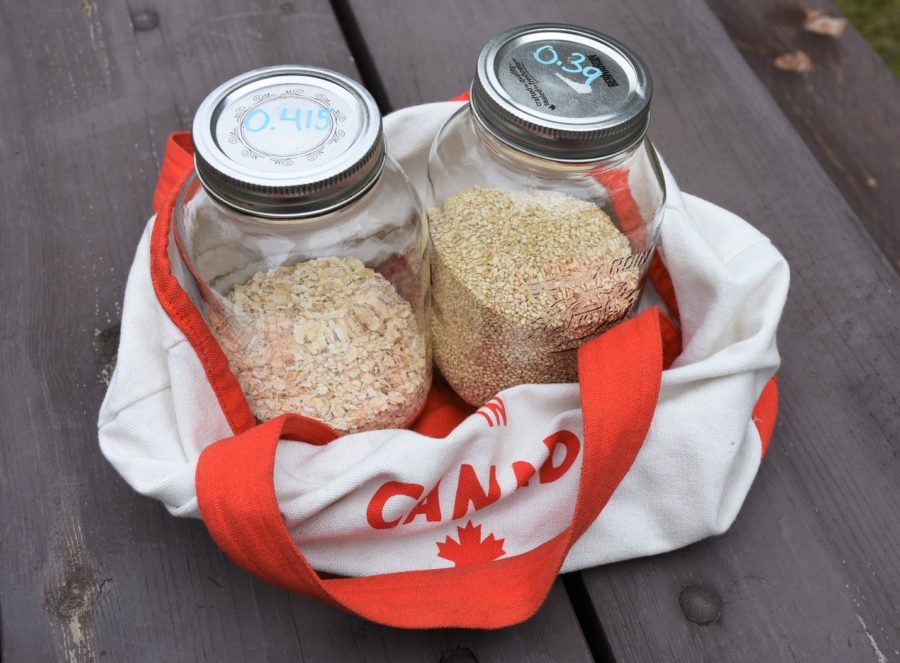
You can do this by prepping things like pancake mix into a jar or slicing up produce to go straight into containers. There are great options for buying bulk items like oats, grains and trail mix in your own reusable jars these days, so you can even eliminate plastic waste right from the store!
7. The best meals are made over a campfire
Save your money on propane cylinders and cook over the fire. You can buy a good camping cookware set from most outdoors stores and use the grate over the campfire pit that Ontario Parks campground sites provide. Bonus points to those who use cast iron skillets!
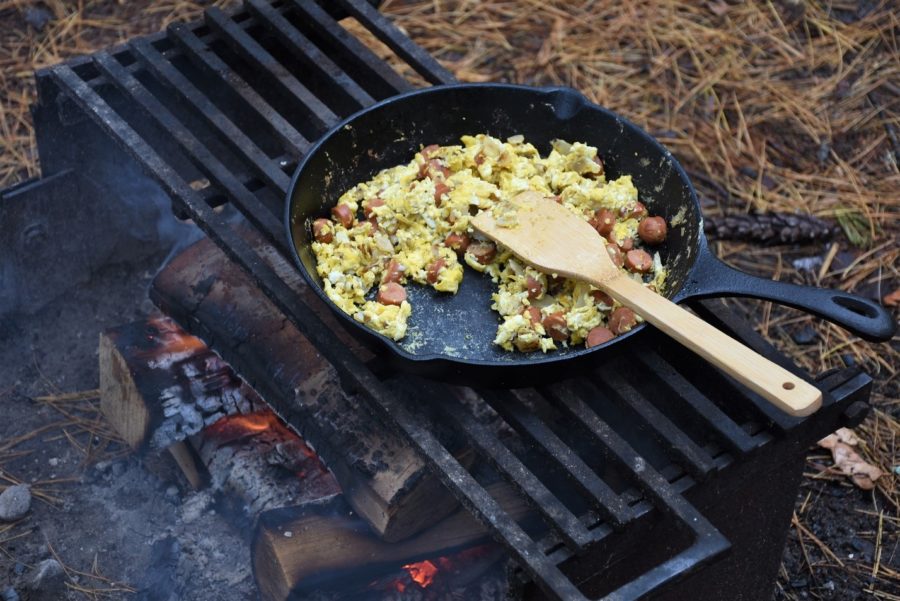
I promise a good cast iron skillet will last way longer than any propane cylinder, and you can even find cast iron skillets secondhand.
8. Don’t skip the dishes; embrace them
Avoid single-use plastics and disposable dishes. Landfills are full enough of plastic cutlery, foam plates and cups, and we have all heard the staggering statistics on plastic straws and cups in our waterways. So let’s avoid this issue altogether!
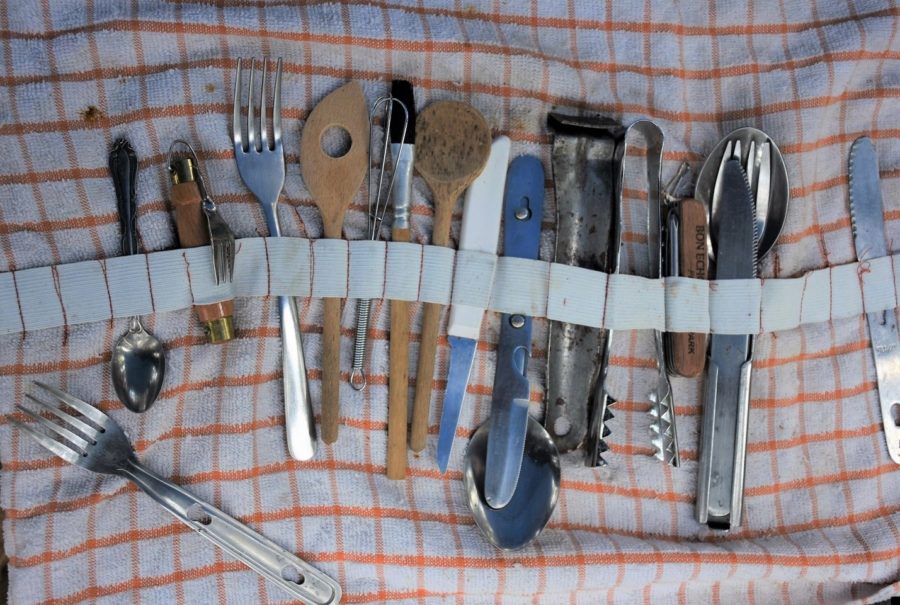
Our solution: get yourself a camping dish set. These do not have to be expensive; you can even use some sturdy dishes you may already have at home. Bring along your kitchen utensils, or get a set of sturdy camping utensils, and you’re good to go.
Low-waste clean-up
9. Low-tech solutions
For all of your great, but now-dirty camping dishes, you will need a good low waste clean-up strategy.
This is where you can bring some of your older cloths and scrub brushes from home to wash your dishes. Bring a tub to fill with soap and water to wash up after meals, then towel-dry off.
10. Separate your recycling, just like at home!
Designate bins or bags for separating your trash from recycling until you have the chance to dispose of them properly. Many provincial parks have recycling stations, but if the one you go to does not, simply pack it out to recycle at home.
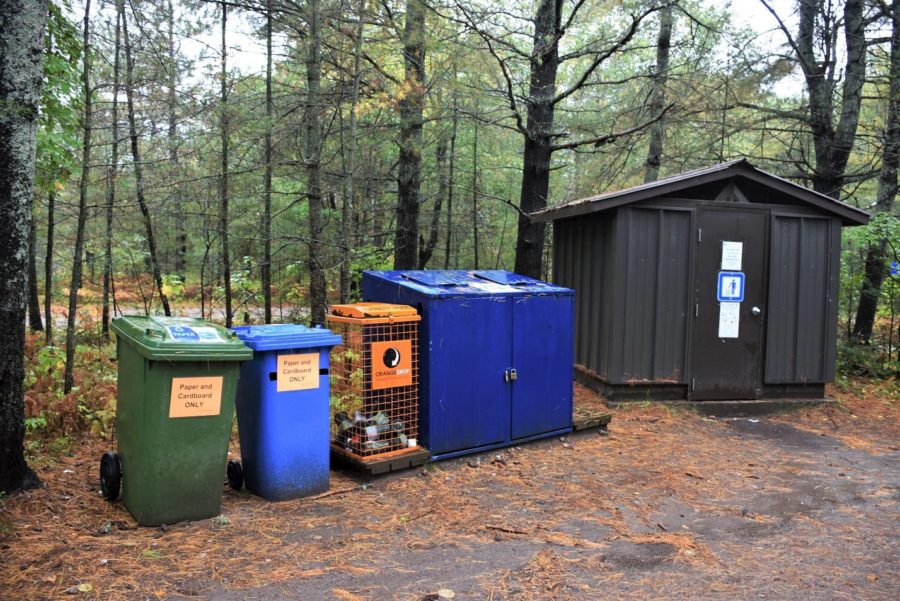
We all love nature; that’s why we camp!
There’s no need to ditch your eco-friendly lifestyles just to keep things simple while camping.
Help keep Ontario Parks green by trying out some of these tips on your next camping trip. And no matter how long the camping trip, remember to reduce, reuse, and recycle!
